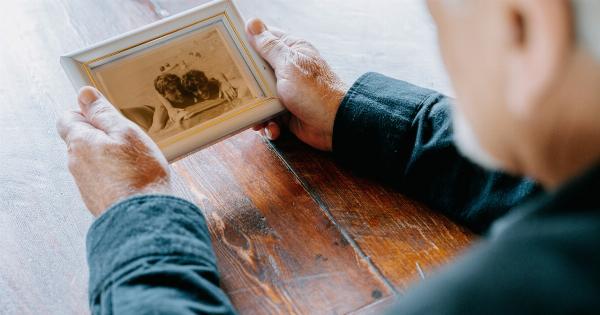Losing a close friend can be an incredibly painful and challenging experience. The bond we share with our friends is often deep and strong, making it difficult to cope with their absence.
The grieving process following the loss of a close friend is unique to each individual, and there is no set timeline for healing. However, understanding the stages of grief and finding healthy coping mechanisms can help facilitate the healing process.
Understanding the stages of grief
Grief is a complex and multifaceted emotion that can manifest differently for each person. It is crucial to remember that the stages of grief are not linear and may be experienced in varying degrees and orders.
The five stages of grief, as proposed by psychiatrist Elisabeth Kübler-Ross, are:.
1. Denial
Denial is often the first stage of grief, where individuals may find it difficult to accept the reality of their friend’s loss. It is common to experience shock, numbness, and a sense of disbelief during this initial stage.
2. Anger
As reality sets in, feelings of anger and resentment may arise. It is not uncommon for individuals to feel anger towards their friend for leaving them or anger towards the circumstances surrounding the loss.
3. Bargaining
During this stage, individuals may find themselves trying to negotiate and make bargains in an attempt to cope with their friend’s loss.
It is common to feel a sense of guilt and believe that if certain choices were made differently, the loss could have been prevented.
4. Depression
In this stage of grief, the individual may experience intense sadness, hopelessness, and a profound sense of emptiness.
It is essential to reach out for support during this period, as depression can significantly impact one’s physical and mental well-being.
5. Acceptance
Acceptance does not imply forgetting or getting over the loss. Instead, it represents a gradual understanding and coming to terms with the reality of the situation.
It is a point where individuals can start to find ways to move forward while still cherishing the memories they shared with their friend.
Coping mechanisms for healing
While the grieving process may vary for each individual, there are several healthy coping mechanisms that can support the healing process after the loss of a close friend:.
1. Seek support
Reach out to family, mutual friends, or support groups to share your feelings and experiences. Surrounding yourself with understanding and empathetic individuals can provide comfort and validation.
2. Express your emotions
Allow yourself to feel and express your emotions without judgment. Whether it is through writing, talking, or engaging in creative outlets, expressing your emotions can assist in the healing process.
3. Take care of yourself
Engage in self-care activities that promote physical, emotional, and mental well-being. This can include exercise, maintaining a healthy diet, practicing relaxation techniques, or seeking professional counseling or therapy.
4. Honor their memory
Find ways to honor and remember your friend, such as creating a scrapbook, dedicating a memorial, or participating in activities they enjoyed. Keeping their memory alive can provide comfort and a sense of connection.
5. Allow time for healing
Grief does not have a set timeline, and healing takes time. Be patient with yourself and allow yourself to grieve at your own pace. Understand that healing is a gradual process and that it is okay to experience ups and downs along the way.
6. Seek professional help if needed
If you find that your grief is overwhelming or significantly impacting your daily life, do not hesitate to seek professional help. Therapy or counseling can provide additional support and guidance during this challenging time.
Conclusion
The loss of a close friend is a profound and deeply personal experience. While there is no definitive timeline for healing, understanding the stages of grief and implementing healthy coping mechanisms can facilitate the healing process.
Remember that healing takes time, and it is crucial to be patient, kind, and compassionate with yourself as you navigate through the grieving process.





























